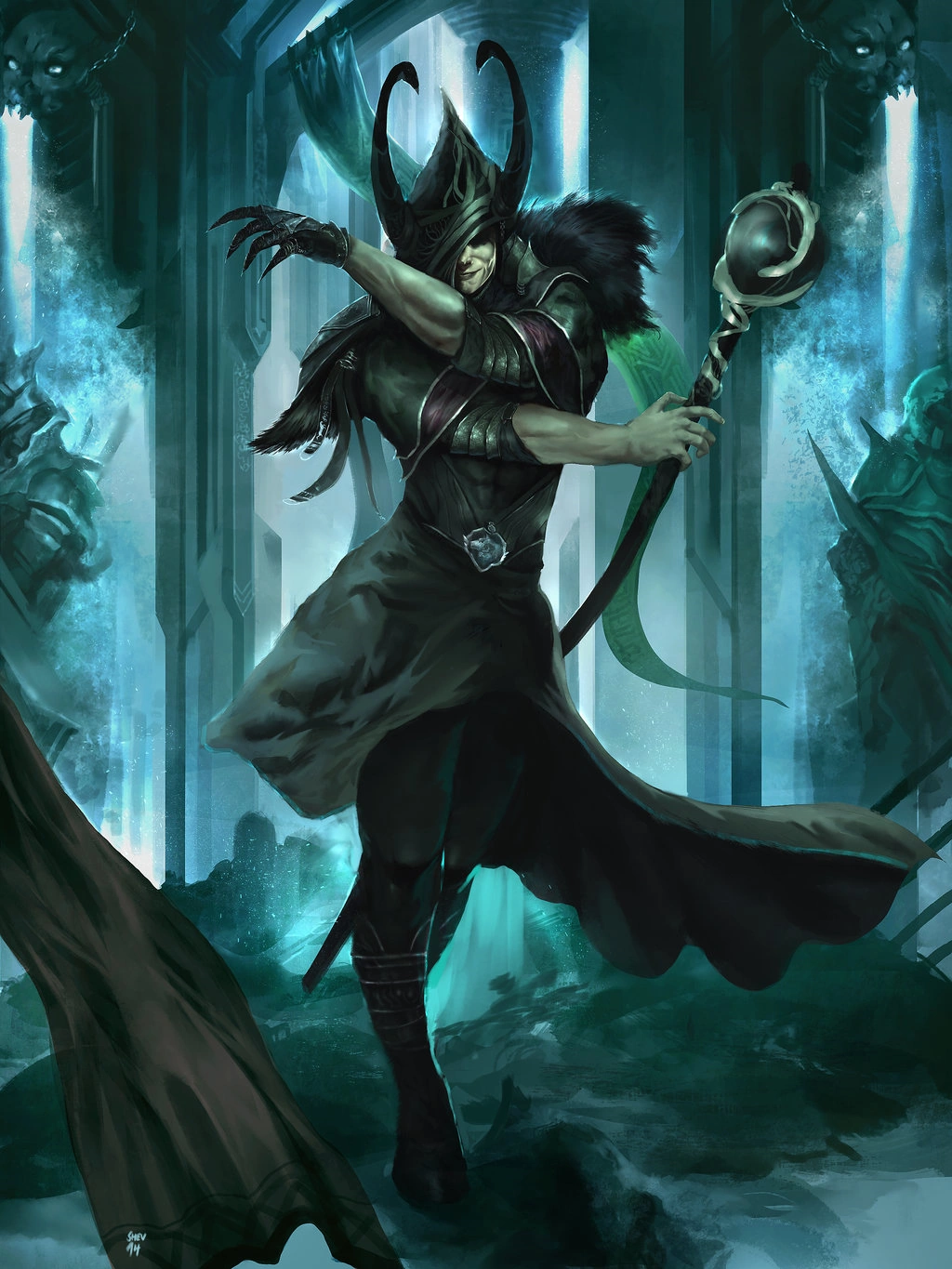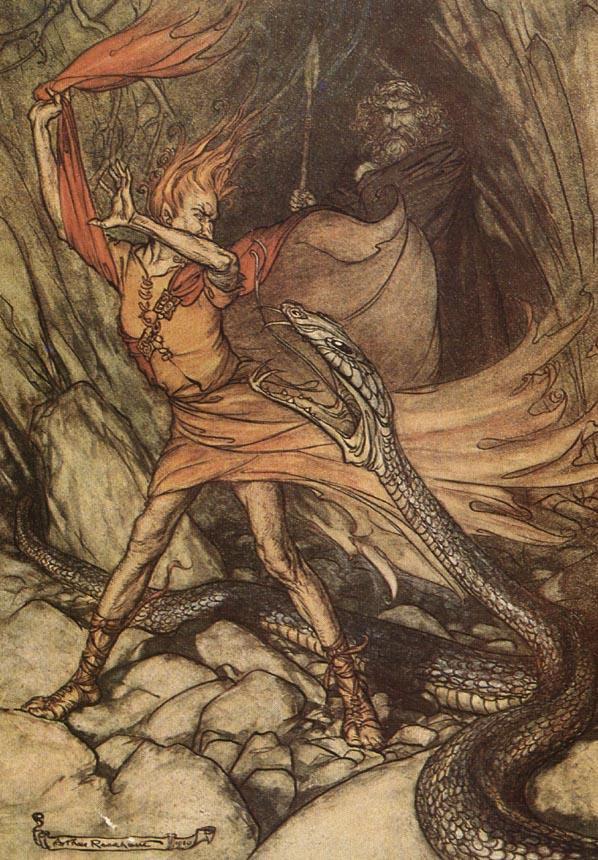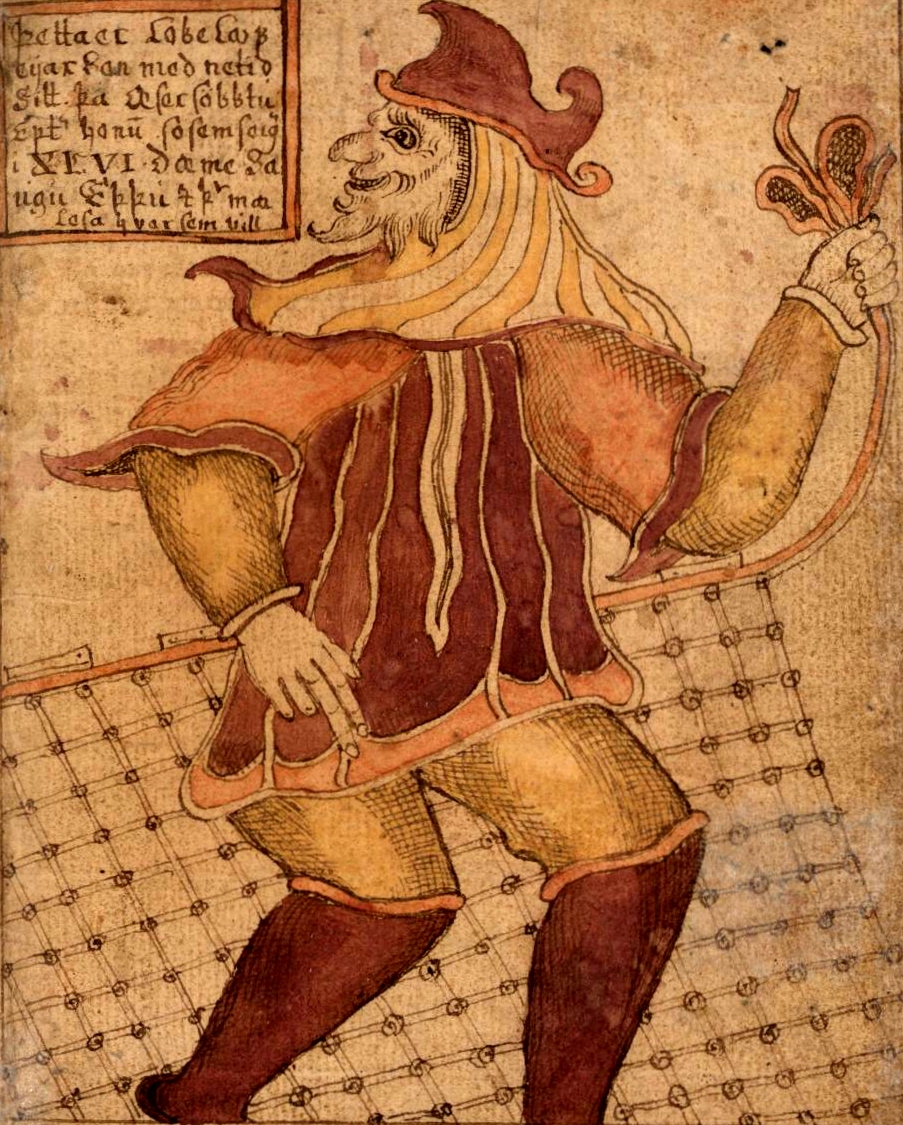
Pin von Ted Irwin auf Alien Research in 2020 Loki nordische mythologie, Nordische mythologie
25 Op. cit. v f., 168 f. 'A re-perusal of the Eddas has impressed me with the remarkable resemblance of Lox, the Wolverine, to Loki.…. But the most remarkable point is that the general immoral character of the Lox, [footnote: The coincidence of name amounts to nothing, as Lox is not, I believe, an Indian word.] or Wolverine, is so much like that of Loki, consisting of evil or mischief of.

Loki Norse Mythology Drawing Items similar to Nearly Full 8.5X11 Loki and Sigyn Norse
To keep things simple, Loki is a mixblood as his father was a Giant and his mother was a Goddess. However, Loki took up the surname of his mother, which in turn, shows that he chooses to be a God. In Norse mythology, mystical beings are divided into two categories, the Gods (Æsir) or the Giants (Jötunn). If we go through the Norse texts, Gods.

Pin by Hunty on Fan Art Loki art, Loki fanart, Loki laufeyson
In einer Sage der nordischen Mythologie zeugten die Riesin Angrboda und Gott Loki den Fenris-Wolf: der Weissagung nach ein gewaltiger Dämon. 1 min. 30.04.2017. Video verfügbar bis 30.04.2027.

Pin by hoturata Li on RISE OF MYTHOS Norse, Loki, Norse mythology
Norse, Nordic, or Scandinavian mythology is the body of myths belonging to the North Germanic peoples, stemming from Old Norse religion and continuing after the Christianization of Scandinavia, and into the Nordic folklore of the modern period. The northernmost extension of Germanic mythology and stemming from Proto-Germanic folklore, Norse mythology consists of tales of various deities.

Loki Wiki Mitos y Leyendas FANDOM powered by Wikia
Loki, the god of mischief, is one of the most famous figures in Norse mythology, and the adaptions of Loki by Marvel have transformed him into a beloved character among fans. However, the "real" Loki was far from the charming, handsome, dark-haired character portrayed by Tom Hiddleston. Read on to learn twelve historical facts about the god. 12.

Loki Fanart Norse Mythology Tattoo, Norse Tattoo, Mythology Art, Viking Tattoos, Loki Marvel
In Norse mythology, Loki is the son of Fárbauti and Laufey. In the world of Marvel comics and movies, Laufey is Loki's father. Fárbauti is a jötunn whose name translates as "dangerous striker.". He is also the father to Loki's brothers, Helblindi and Býleistr. Laufey appears in a list of Ásynjar (goddesses) in a þulur or sub.

Loki Norse Mythology Loki Fan Art (30846937) Fanpop
Loki orchestrates Baldr's death by guiding a mistletoe dart thrown by Baldr's blind brother, Hodr. This act leads to Loki's punishment and marks the beginning of Ragnarok, the prophesied end of the world in Norse mythology. In summary, Loki's role in Norse mythology is complex. He is a trickster, shape-shifter, troublemaker, and an.

Tricksters in Mythology and Folklore by BloodrainFireDawn on DeviantArt
Loki and the Gods. Image Source: The Daily Beast. In Norse mythology, Loki is looked at as a cunning trickster that was able to change his shape. Though it is said Farbauti was his father, he was known to be among a tribe of gods called Aesir. He is denoted as a companion of great gods Thor and Odin, helping them with his smart plans.

"Loke/Loki and three of his children" by Loki laufeyson, Nordische
Ursprünglich als Albe gesehen ist Loki in der Edda ein Gott des Feuers, der List und ein dämonischer Trickser, halb Gott und halb Riese, ein Gestaltenwandler, der sich in alle erdenklichen Tiere verwandeln kann (z.B. Adler, Stute, Lachs, Fliege.) Inhaltsverzeichnis

loki god에 대한 이미지 검색결과 Скандинавская мифология, Мифология, Локи
Loki, the Norse god whose mischief and shenanigans knew no limits, was such an ambiguous character, with his role moving from darkly malicious and evil to helpful but cunning. Loki's name thus elicits both positive and negative connotations in Norse mythology. As the god of mischief, Loki had many banters with his fellow gods and beings in.

Loki sketch by SceithAilm Loki norse mythology, Loki mythology, Loki
Loki, in Norse mythology, a cunning trickster who had the ability to change his shape and sex. He was represented as the companion of the great gods Odin and Thor, helping them with his clever plans but sometimes causing embarrassment and difficulty for them and himself.

Loki The Trickster by Andrea Guardino r/mythology
The term "loki" (or its variants like lokke, lokki, loke, luki) was also used to describe makers of cobwebs, such as spiders. In the Poetic Edda, a collection of ancient Norse poems, Loki is sometimes referred to as Loptr. The name Loptr is believed to be derived from the Old Norse word "lopt," which translates to "air.".

Æsir Loki God of Mischief and Lies Norse mythology, Loki norse mythology, Norse pagan
Cookie Laufzeit. 6 Monate. Bild: Leremy / Shutterstock.com Loki war der nordisch-germanische Gott des Feuers und der List. Am Ende leitete er Ragnarök, den Untergang der Götter, ein. Kaum ein anderer der germanischen Götter war dermaßen vielschichtig wie Loki. So galt Loki als klug und durchtrieben, aber auch als hinterhältig und skrupellos.

190 nordische Namen für Jungen und Mädchen (+ Bedeutung)
Loki, an intricate and multi-dimensional deity, stands as one of its most recognized gods. Renowned for his shape-shifting abilities and identified as a master trickster, Loki holds his place among the Aesir, the primary assembly of gods in the Norse pantheon. With a reputation for craftiness, mischief, and a penchant for unpredictability, Loki.

Loki Norse Mythology Loki Photo (30842330) Fanpop
Loki (auch altnordisch Loptr, Hveðrungr) ist eine Figur aus der nordischen Mythologie, besonders aus der eddischen Dichtung des Snorri Sturluson bekannt. Die literarischen Quellen zur Figur des Loki sind neben der Prosa-Edda und der Lieder-Edda, darunter etwa den Lokasenna („Lokis Zankreden"), auch die Werke der Skaldendichtung.

Loki Norse Mythology for Smart People
Loki (02:45) Njörd (03:08) Frey / Freyr (03:29) Freya / Freyja / Freia (03:38) Die Riesen Ymir, Mimir und Surt (04:05) Nordische Gottheiten Geschlechter (00:36) Wie so viele andere Kulturen schufen auch die Völker des Nordens eine eigene Mythologie. Sie glaubten an verschiedene nordische Götter.